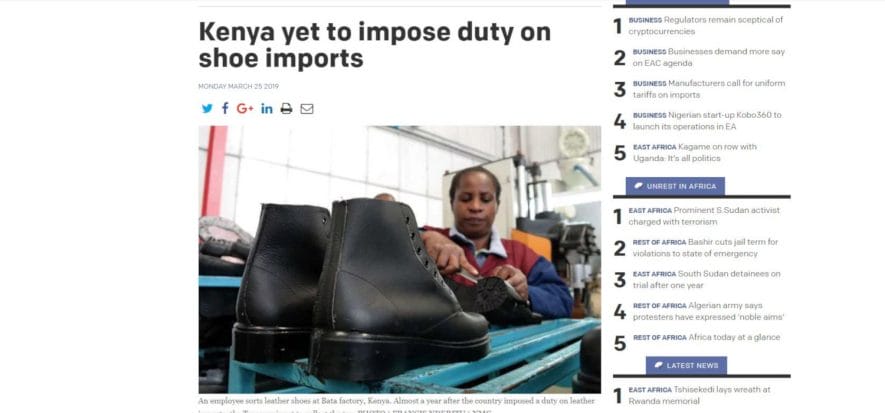One year after the duty increase the government’s chest doesn’t have a penny more than before. This is happening in Kenya, where in June 2018 the government approved a duty between 25% and 35% on the value of shoes – or 10 USD per unit -, with the goal of helping the local segment and protect it from outside competition. The treasury, though, has allegedly not collected the duty yet. Daily news theeastafrican.co.ke reported how, according to its sources, the government is stuck between large importers, pushing for a suspension of the duty for 2019 and 2020 as well, and Kenyan entrepreneurs working inside the leather chain, from tanners to shoes and leather goods’ manufacturers, all asking for assurances. Secretary General of Leather Apex Society, Beatrice Mwasi, said to the African newspaper that “the government is involved on two fronts: from one side it imposes the duties on imported leather products and on the other side it cannot enforce it”.
According to data from Kenya Revenue Authority, the collecting government agency that should handle the duty collected 5.2 million USD in taxes between July 2018 and February 2019 (4.6 million euro), of which 3.2 million from duties on imports (2.8 million euro) and the rest from sales taxes. But according to Kenya-based newspaper the numbers don’t add-up, because if the volume of imported merchandize had stayed constant from one year to the other, the KRA should have had collected much more from duties, or in alternative much more from sales taxes due to the increase in the activity of local businesses. Kenya and its leather industry have been at the center of news cycles for a while now. If one side the high taxation, the duties on certain products and low-quality chemical auxiliaries don’t let the segment capitalize on its potential, on the other side this news inquiry might have brought to light an alleged contraband operation that deals in raw hides between Kenya and Uganda, exchanged under the table to avoid taxation.











